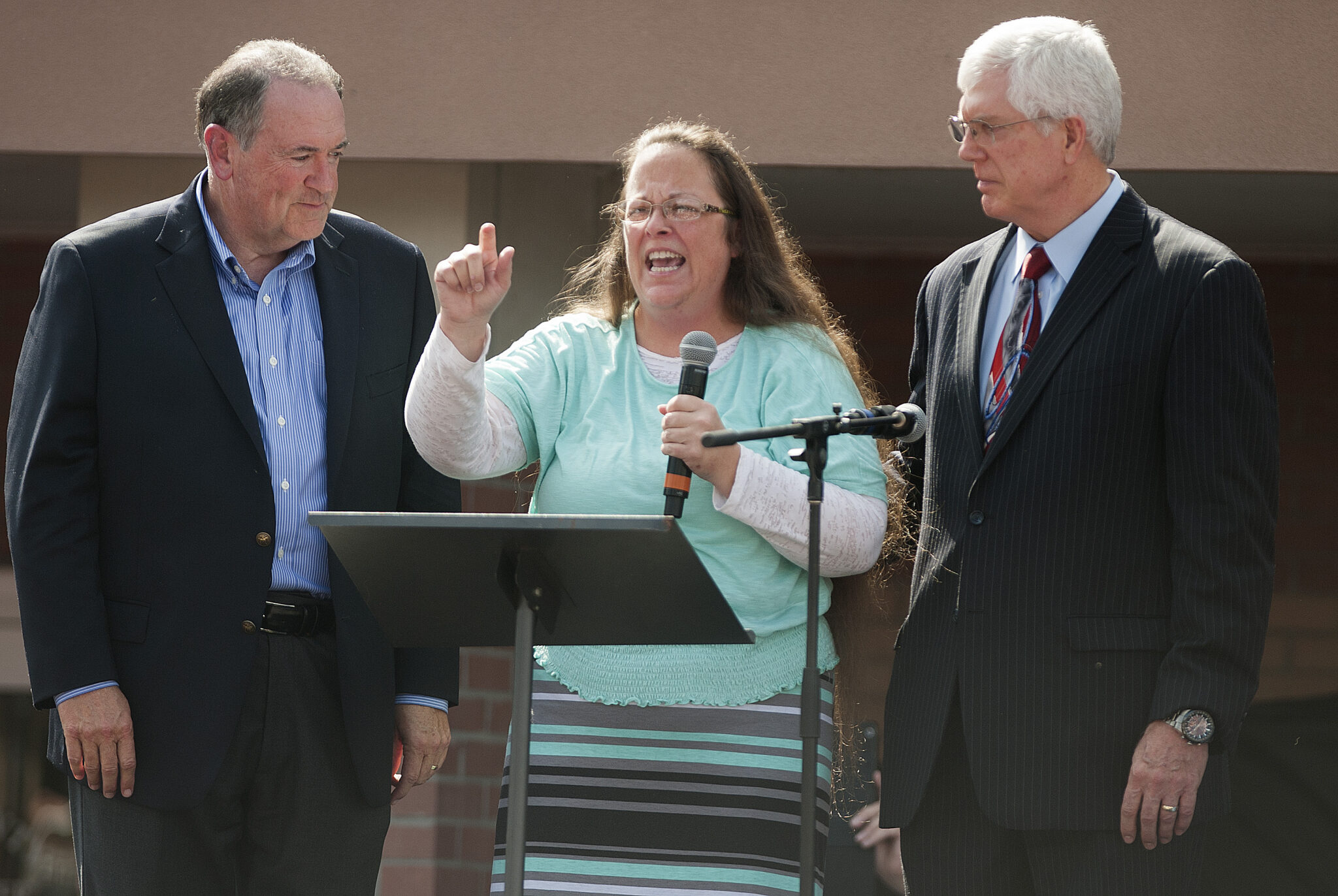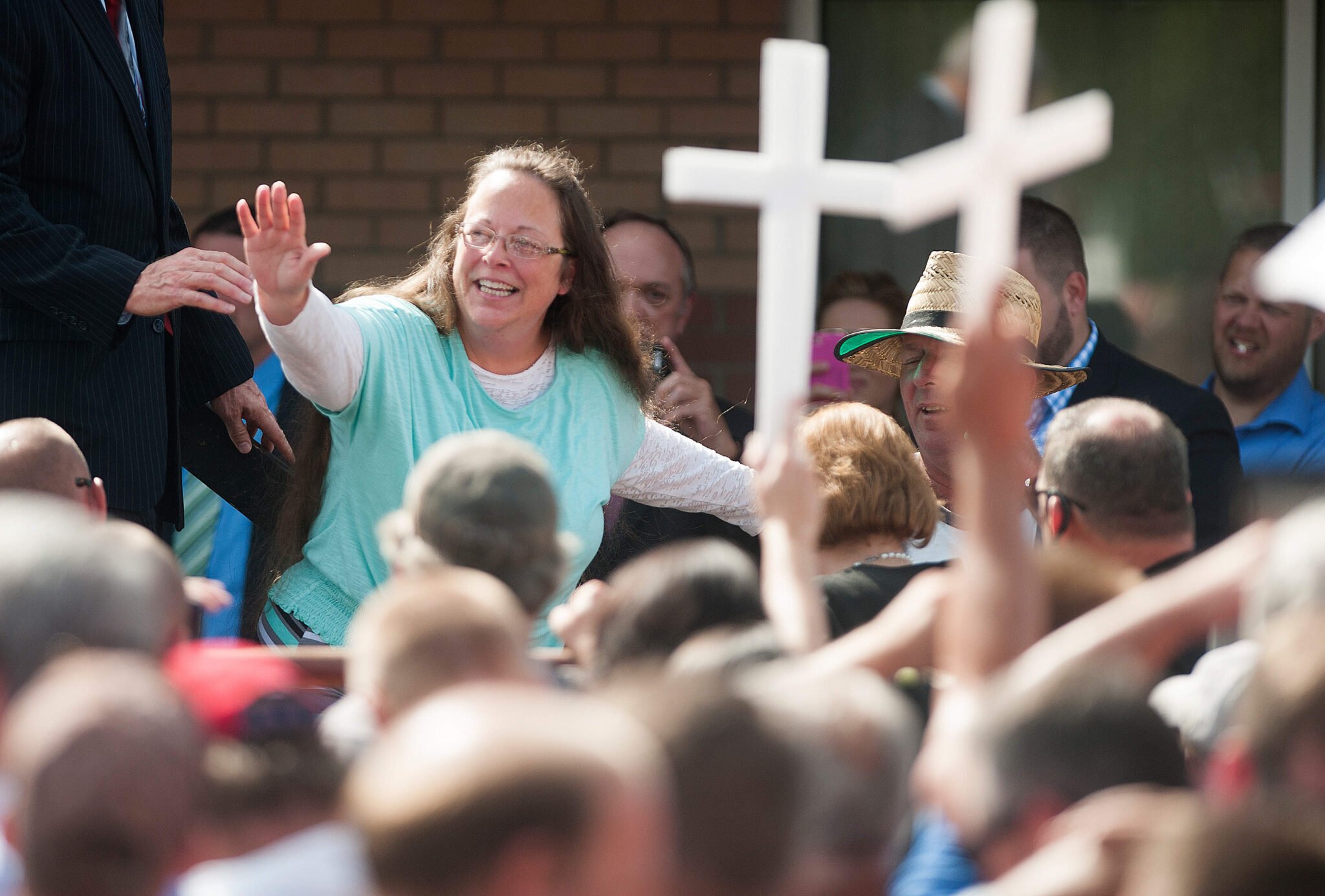The U.S. Supreme Court is set to privately consider whether to reopen the issue of marriage equality — a move that could have sweeping implications for LGBTQ+ rights nationwide.
The case comes from Kim Davis, the former Kentucky county clerk who made national headlines in 2015 after refusing to issue marriage licenses to same-sex couples, even after the Supreme Court’s landmark Obergefell v. Hodges decision legalized same-sex marriage across the United States.

According to SCOTUSblog, the justices will meet on Nov. 7 to decide whether to hear Davis’s petition. Davis, who briefly served jail time for defying a federal court order, is now asking the court to not only overturn her losses in lower courts but also to reverse Obergefell entirely.

Davis’s case has long been a rallying point for anti-LGBTQ+ activists who argue that government officials should be allowed to deny marriage licenses on religious grounds. However, lower courts have consistently ruled that Davis, as a government employee, violated the constitutional rights of same-sex couples. Earlier this year, the U.S. Court of Appeals for the 6th Circuit reaffirmed that she acted as a public official—not a private citizen—when she refused to issue licenses. A jury previously awarded $50,000 in damages each to David Moore and David Ermold, the couple Davis turned away.
If the justices choose not to take the case, that decision could be announced as early as Nov. 10. But if they agree to hear it, it would mark the most direct challenge to Obergefell in a decade and could reignite national debate over marriage equality in a post-Roe v. Wade judicial landscape.
Public support for same-sex marriage remains strong. A 2024 Gallup poll found that 69 percent of U.S. adults support legal marriage equality, close to a record high. Still, partisan divides persist, with 83 percent of Democrats and 74 percent of independents backing same-sex marriage, compared to just 46 percent of Republicans.
LGBTQ+ advocacy groups have warned that even the possibility of the Court revisiting Obergefell poses a threat to hard-won rights. “Marriage equality has been settled law for a decade, and Americans overwhelmingly support it,” said one LGBTQ+ rights attorney. “The fact that we’re still fighting this battle shows how fragile progress can be.”
As the Supreme Court prepares to deliberate behind closed doors, couples across the country, especially within the LGBTQ+ community, are watching closely. Whether the justices decide to take up Davis’s case or let the lower court ruling stand, the outcome will signal how secure marriage equality truly is in 2025 America.



